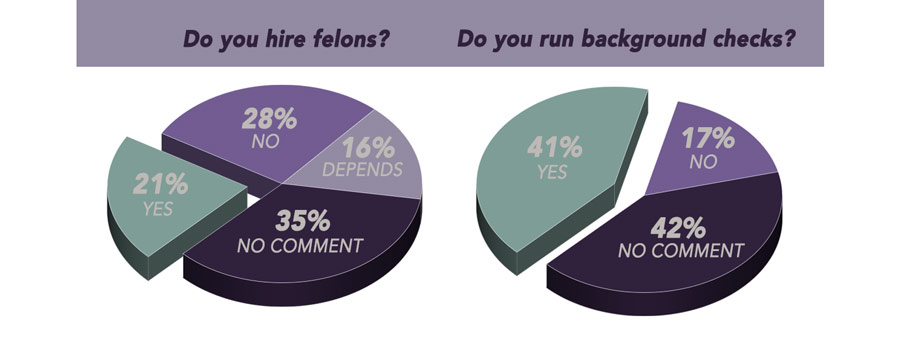<!– –>
<!– –>
<!– –>
The Struggles of Securing a Job
April 24, 2018
On this episode of Locked Out, we explore the struggles felons face when applying for and securing a job.
Teka McKnight spent her days caring for people with disabilities. Now, she sweeps kitchen floors and folds hotel towels just to support her family. The 41-year-old grandma is battling to keep her job while her nine-year-old charges still stand in her way. She isn’t the only one.
70 million people in the U.S. have a criminal record. We often see the box on a job application asking about criminal history, but rarely do we think about the struggles felons go through to get past this label.
We spent months following Teka as she fights to keep her job and support her kids and grandkids.
Her story uncovers the challenges felons face just to pay their bills.
Facing the Facts
In the U.S.,it is legal for employers to reject applicants who haveacriminal records, according to guidance issued by the Equal Employment Opportunity Commission (EEOC) in 2012. An applicant can be denied if a hiring manager believes his or her felony charges put the company at risk. Title VII of the Civil Rights Act of 1964 does not consider this to be discrimination.
Before screening out applicants with criminal histories, the EEOC requires employers to consider three things:
- Nature of the crime/charge committed
- Time that has passed since the offense or release
- Nature of the job the employee would work
Background checks can also impact a felon’s chance of securing employment. No authorities on a national or local scale can prevent companies from conducting these checks, said EEOC spokesperson Christine Nayzer in a phone interview.
“[Employers] should not make hiring decisions that could have a disparate impact on applicants or employees,” she said. “They certainly must not deliberately use the checks to discriminate.”
The EEOC recommends felons explain their charges to employers, but there is no guarantee it will help them get the job.
Our Investigation

We wanted to know just how hard it is to find a job with a criminal record.
We cold-called 150 companies in North Central Florida and asked them if they hire felons and conduct background checks. We spoke to hotel managers, restaurant owners, small-business owners, retail managers and others to get a wide range of data.
Here is what we found:

Judging Before the Job
A criminal record can be a permanent stamp on an application, limiting felons’ chances at employment, said Meshon Rawls, a University of Florida law professor.

“When you just say convicted felon it doesn’t tell you a whole lot about a person,” she said. “I think sometimes people make judgments before they really know about the person who’s actually applying.”
After prison, Teka accepted a restaurant manager position. When other managers and employees learned about her record, she was fired.
“A couple people there knew I went to prison and they told [the manager] and they checked my record,” she said. “They told me they had to let me go because you have a record and we can’t have you here.”
While she now works cleaning houses and hotel rooms, she struggles to find happiness and financial stability in her work.
“I can’t get a decent paying job,” she said. “I have to learn every position in the job just to get money.”
<!– –>
Up next: Voting Rights »
 Special Report from WUFT News
Special Report from WUFT News